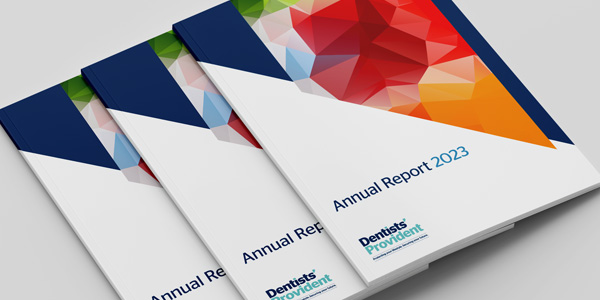
With recruitment becoming increasingly difficult, our non-executive director and Vice chairman Dr Raj Rattan MBE looks at why and how practice owners can start the year by prioritising a retention strategy for their business.
Recruitment has long been difficult in the profession. Last year the British Dental Association (BDA) reported a survey showed two thirds (65%) of dentists reported their practiced have unfilled vacancies for dentists, with nearly a third (29%) saying that those vacancies have been unfilled for more than a year1.
Other figures show that employee turnover rate in dentistry in England was estimated at 27.3%2 - well above the national average of 15-17%3.
With a multitude of pressures in the profession, including more dentists moving away from NHS dentistry, and increased crisis in manpower – it’s more pertinent than ever for your team to remain loyal to you as a practice owner and ensuring it stays that way.
To build a strong, healthy business that is capable of growth and constant improvement, you need to retain staff.
The pandemic has taken its toll in the workplace. Emotional wellbeing and happiness are now the focus. Research carried out by Oxford University's Saïd Business School suggests ‘that much of the happiness effect may be traced to improved social and emotional skills suggests that the importance of employee happiness in driving productivity growth is likely to rise in the coming years.’
So, what do we mean by happiness? Generally speaking, we take it to mean subjective wellbeing. It has cognitive and emotional dimensions. In our daily work environment, we may call it ‘mood’ or ‘morale’ and we loosely refer to the work atmosphere as good or bad. Low morale leads to a negative attitude and poor work performance.
Unhappy employees will eventually leave. Losing a key member of the team can be unsettling, compromise smooth running of the practice but also plants a seed of doubt among other members of the team. It is not uncommon to hear of scenarios where there has been a mass exodus over a period of time.
Gallup has identified five elements of wellbeing:
The extensive research across 150 countries, showed that 66% of people were doing well in at least one of these areas, but only 7% were thriving in all five which impacts wellbeing. An employer can make a difference in many areas. For example, work related stress and long hours can adversely affect social and personal relationships, and a fair salary can contribute to financial stability. As a caring employer, you should aim to help your team achieve at least some of these elements of wellbeing.
In the early 1990s, I read about in a book what had a great influence on me in my formative years as a practice owner and employer. "The Customer Comes Second" is an account of the management and leadership style of Hal Rosenbluth who was the Chief Executive Officer of Rosenbluth International, a global travel firm. The title was seductive - given the healthcare mantra that the patient comes first. The patients are front and centre of everything we do and serve them best by having a committed, engaged, and happy team.
The service-profit chain (first published in 1994 and a perennial best seller) reminds us that employee satisfaction is directly linked to patient satisfaction, and patient satisfaction impacts financial performance and drives business growth. It establishes relationships between profitability, patient loyalty, and employee satisfaction, loyalty, and productivity.
The basic principle of the Service Profit Chain theory is founded on the fact that patient satisfaction starts with good staffing and treatment of one’s own employees.
This refers to the differences in beliefs, behaviour, and outlook between different generational cohorts. Each generation grows up and is shaped by the environment and their experiences mean that they often have different expectations of life and work.
At present, there can be up to five generations in the workplace:
| Traditionalists (The Silent generation) |
Born 1927 - 1946 | Hardworking, prefer flexible working arrangement if retired. |
| Baby Boomers | Born 1947 - 1964 | Strong work ethic, hardworking, nearing retirement, many may wish for part-time work, like to be appreciated for their work, financial stability important, ethically practices important. |
| Generation X | Born 1965 - 1980 | Shaped by introduction of computers, generally hardworking and financially prudent, rate ethical practices highly. |
| Millennials | Born 1981 - 2000 | Largest cohort of the current workforce. They straddle the way things were and the way they are. Communicate with email, messages more so than previous generations. |
| Generation Z | Born 2001-2022 | Look to social media to discover more about employers, considered to be the most ‘anxious’ generation. They want work to be meaningful. Job hopping generation (along with millennials). Work-life balance a priority. |
A practice may have representatives from each generation. Focus on what matters to the different cohorts; the age diversity is an asset, and we should embrace it.
The commentary is not exhaustive but a reminder to recognise the differences between the generations which should influence how they are manage and rewarded.
The real cost of staff turnover is the loss of productivity. In my experience, these elements most contribute to staff retention in general practice:
Consider these elements to deliver a quality work experience which will attract the best people and retain them.
In the words of Richard Branson, “Take care of your employees, they will take care of your business”. It has been my experience and I thank them for it.
References
If you have any questions, please contact our member services consultants by emailing press@dentistsprovident.co.uk or calling 020 7400 5710.
If you have any questions, please contact our member services consultants by emailing
memberservices@dentistsprovident.co.uk or calling 020 7400 5710.

Our 2024 Annual General Meeting will be held at 91-94 Saffron Hill, London, EC1N 8QP on Friday 24th Ma…
Read more
The 2023 annual report from Dentists’ Provident, a leading income protection provider for dental profe…
Read more
Our next exhibition is the Dentistry Show London in October, where we look forward to meeting anyone interested in becoming a member or members wanting to discuss their plans.